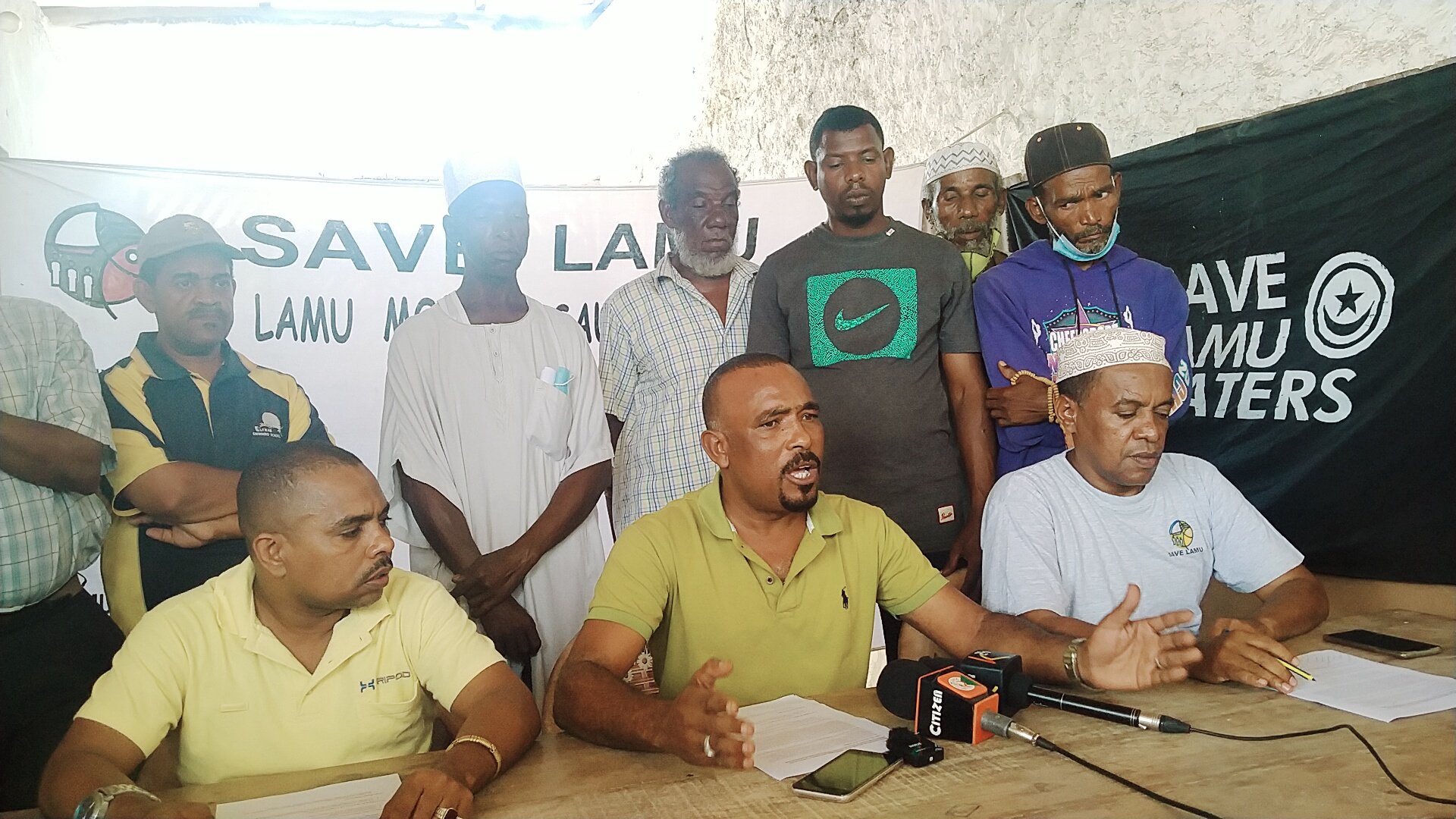Lamu fishermen have vowed to continue with their fishing activities along the rich Kiungani fishing ground even after the International Court of Justice ICJ made its ruling in favour of Somalia.
Speaking shortly after the decision in Amu Island, Save Lamu Chairman, Ishag Abubakar has urged the National Government not to cede a single ground after the ruling, terming the decision made by ICJ as a colonialist aimed at destabilizing Kenya's territories.
Accompanied by a section of Beach Management Unit officials from across Lamu, the activists further raised concerns that the fishermen are likely to lose out on fishing grounds within the Kiunga area.
He added that more than 50,000 families who directly depend on the fishing sector will likely be affected.
“Our fishing grounds which have been the mainstay of many Lamu families over decades, are now under threat over the maritime dispute between Kenya and Somalia,” .he said.
Read More
He says that fishermen have been enjoying improved security without fears of piracy or Al-Shabaab due to improved Kenya Defense Forces presence.
“Not only is 80 per cent of Lamu’s economy dependent on the blue economy sector, but 65 per cent of Lamu’s rich fishing grounds are based in the disputed maritime waters of the Kiunga area,” he stated.
Lamu County Commissioner Irungu Macharia has therefore called for calm stating that regardless of the ICJ verdict, it will continue to be business as usual along the maritime area in question.
“Fishermen can take heart in the fact that the National Government will not cede its territorial waters to Somalia under any circumstances,” .said Macharia.
Macharia said that the National Government had put in place measures to ensure apart from the fishermen being protected, the LAPSSET project, as well as the conservancies such as the Kiunga and Dodori National Marine Reserves, will continue to be protected by the government.
ICJ President Judge Joan E. Donoghue ruled Tuesday that there is no evidence to show Somalia submitted to Kenya’s use of latitude and longitude to determine maritime borders.
In its ruling, ICJ said that using Kenya’s method would not result in an equitable determination of the maritime borders with Somalia.
For the past four decades, Kenya has said a line due east of the point where the two countries meet at the coast represents the maritime border.
The panel of 14 judges sitting in The Hague said that Kenya had not proved that Somalia had previously agreed to its claimed border.
Instead, they drew a new line which has split the disputed area in two.
The disputed triangular area measuring 62,000-square kilometres, extends to parts of Mombasa and Lamu, from where Kenyan fishermen earn their livelihood.











